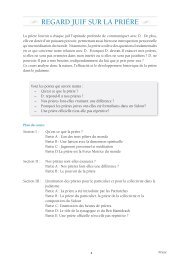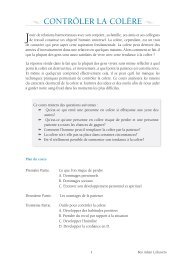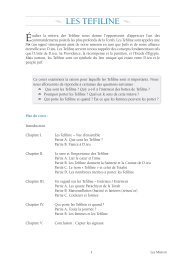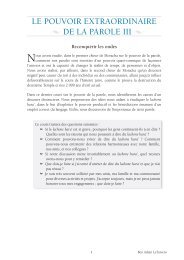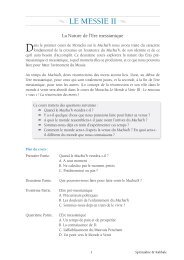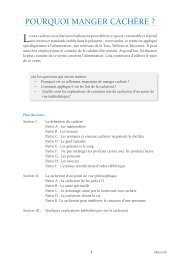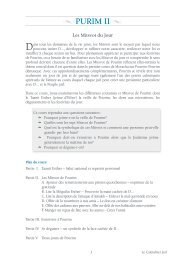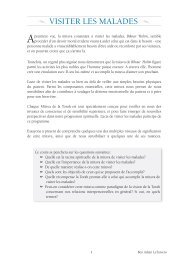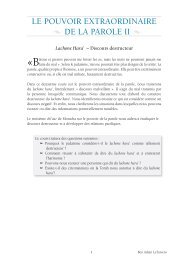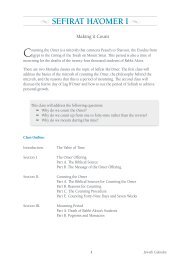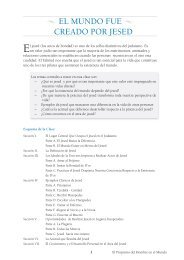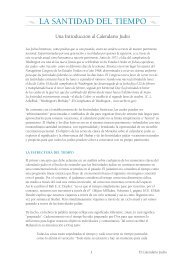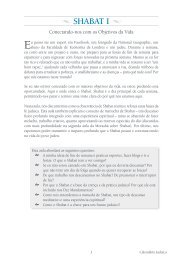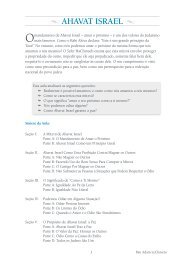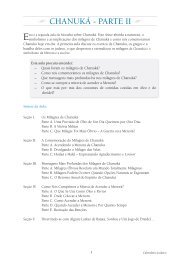Teshuvah – ParT I - Morasha Syllabus
Teshuvah – ParT I - Morasha Syllabus
Teshuvah – ParT I - Morasha Syllabus
Create successful ePaper yourself
Turn your PDF publications into a flip-book with our unique Google optimized e-Paper software.
<strong>Teshuvah</strong> I<br />
SeCtiOn i. WhaT Is <strong>Teshuvah</strong>?<br />
<strong>Teshuvah</strong> means return. Return to what? The Baal HaTanya explains that the word teshuvah is a composite<br />
word formed from the word tashuv and the letter hei. It means “return to God.” That is what teshuvah is.<br />
Remarkably, somebody who is distant from God, somebody who has strayed far afield, is able to make a<br />
miraculous return.<br />
1. Rabbi Shimon Apisdorf, Rosh HaShanah Yom Kippur Survival Kit, Leviathan Press, p.102 <strong>–</strong><br />
Dealing with mistakes.<br />
One of the most common words in your prayer book is “sin.” It’s not a very pleasant sounding<br />
word. Certainly no one wants to look at himself or herself as a sinner. In Hebrew, the generic term<br />
for sin is chet. This term literally means “to make a mistake.” Sins, no thanks. But mistakes <strong>–</strong> sure <strong>–</strong><br />
we all make mistakes.<br />
The issue on Yom Kippur (and throughout the year) is this: How do we correct the mistakes of<br />
our past and avoid repeating them in the future? If we can understand this, then we possess the<br />
key to unlocking an enormous reservoir of latent potential for greatness that would otherwise lie<br />
dormant.<br />
This is teshuvah. The common translation of teshuvah is “repentance.” Again, a rather foreign<br />
sounding idea. The proper translation of the word teshuvah is “to return.” <strong>Teshuvah</strong> is an animated<br />
technique for locating the rationalizations that lie at the root of our mistakes: recognizing them,<br />
dealing with them, and eliminating them.<br />
Like an act of betrayal against a spouse or a close friend, which causes a tangible dent in the relationship,<br />
iniquity “dents” our relationship with God. In the words of the verse below, sin constructs a barrier, as it<br />
were, between man and God.<br />
2. Yeshayahu (isaiah) 59:2 <strong>–</strong> Sin comes between man and God.<br />
For your iniquities have come between you and<br />
your God, and your transgressions have caused<br />
Him to hide His countenance from you, from<br />
hearing [you].<br />
Core Beliefs 2<br />
םכיקלא ןיבל םכניב םילדבמ ויה םכיתנוע םא יכ<br />
:עומשמ םכמ םינפ וריתסה םכיתואטחו<br />
The gift of teshuvah, however, allows a person to return to God <strong>–</strong> the far are drawn close.<br />
3. Hoshea (Hosea) 14:2 <strong>–</strong> Returning all the way to God.<br />
Return, O Israel, unto the Lord, your God, for<br />
you have stumbled in your transgression.<br />
:ךנועב תלשכ יכ ךיקלא ’ה דע לארשי הבוש<br />
This world is a place full of obstacles and stumbling blocks. Indeed, we stumble and fall, succumbing to at<br />
least some of the pitfalls that cross our path. As the Talmud teaches, there is no human being who never sins<br />
(Sanhedrin 46b, based on Kohelet/Ecclesiastes 7). God knows that our journey in this world is precarious<br />
and has therefore given us a great gift: the gift of teshuvah, the power to return.



